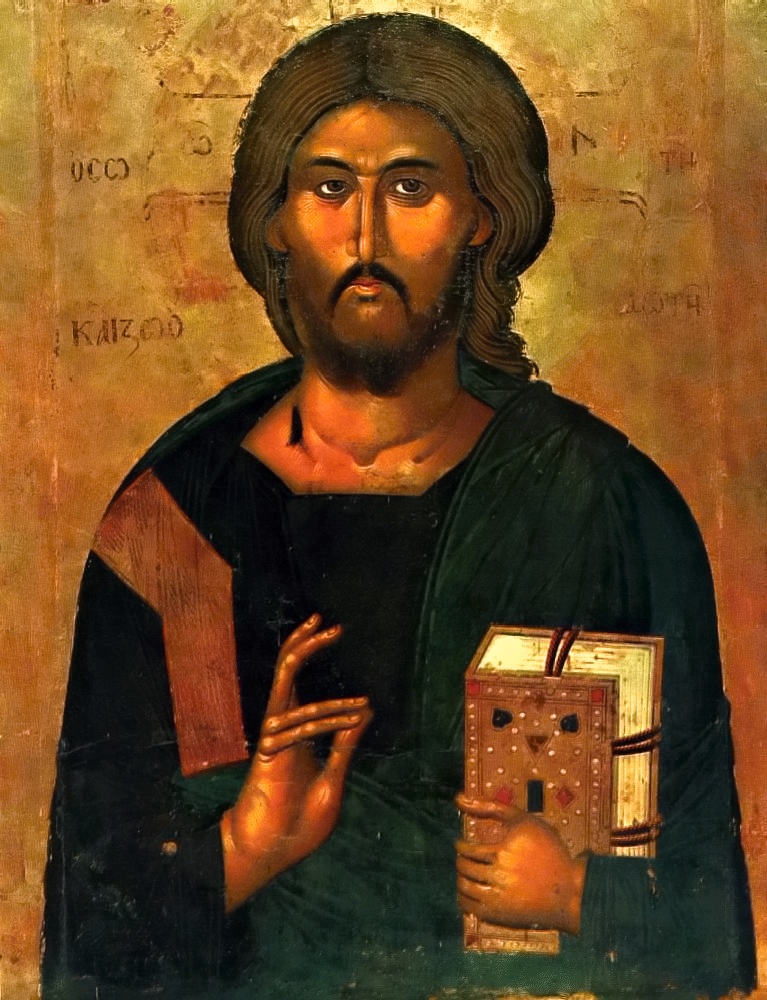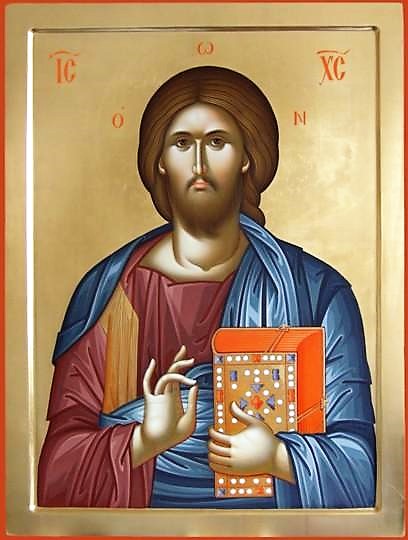152. Is there any relatedness of meanings between the names of Jesus and that of Christ ? But between them and that of Lord?
If we look well we see that by these three ministrations of hierarch, prophet and emperor contained by the name of Christ, Jesus saves the world by His sacrifice, teaches it to assume its salvation and leads it to this salvations. Thus if the name of Jesus shows us how and with what power He has done and does this work. Both names say the same thing from two opposite sides: Jesus Christ is our Saviour. And that is why He is Lord for our souls. If we don’t receive Him as Lord, then He is no Saviour for us.
153. When did the Son of God receive the name of Jesus Christ ?
The Son of God received both names, of Jesus and of Christ, when He made Himself man. So Jesus Christ is the incarnated Son of God.
Before His incarnation He was not called Jesus Christ. He became our Saviour when He incarnated Himself taking our body and sacrificing it for us. Only by His incarnation He became our hierarch who purified us of our sins, prophet who announced us by human speech the will of the Father and guide to salvation (Christ). If Christ means Anointed, this name shows our Saviour as man who receives the anointment, not as God who gives it. Saint Cyril of Alexandria says : `Some say that the name of Christ belongs only to the Word born from God the Father who is perceived and exists in a particular way. But we were not taught to say this, but to say instead that in the moment when the Word incarnated was called Christ. He is named Christ because He was anointed with the oil of joy (Ps. XCIV, 9), meaning with the spirit coming from God the Father.
154. So when we say Jesus Christ we don’t begin from the Son of God before incarnation but from the One after that?
Yes, of course and in the same way the second article of the Creed does not begin the avouchment from the Son of God before incarnation, meaning from a Son thought with the mind, but from Jesus Christ, Who lived on earth for real, in a distinct period of time, was born from Virgin Mary, lived among people, was crucified, resurrected and ascended to heaven. This Jesus Christ revealed Himself to the hearts by everything He said and did, as Son of God. This Jesus Christ is confessed by the Church in the Creed first that He is the only Lord and then everything follows at article II, first of all that He is the One born Son of God.
155. What means the words: The One born Son of God?
Jesus Christ Who lived on earth is the Unique Son f God. Although He lived on earth as a real man, He is in the same time the Son of God. This is how He revealed Himself: first to the Apostles by the Holy Spirit and they confess through Peter: `You are Christ, the Son of the living God.` (Matthew XVI, 16). And Jesus confirms the truth of this confession: `Blessed are you, Simon son of Jonah, for this was not revealed to you by flesh and blood, but by my Father in heaven.`
(Matthew XVI, 17). Many times the Holy Scripture calls the men sons of God too, but it calls them in this way wither because they are created by Him or because they are born again to a new life by the grace of the Holy Spirit.
`You are the children of the Lord your God` (Deuteronomy XIV, 1) Moses tells the Jews referring more at the meaning of sons by creation.
Yet to all who did receive him, to those who believed in his name, he gave the right to become children of God— children born not of natural descent, nor of human decision or a husband’s will, but born of God. (John I, 12-13). Here it is talked about the sons of God by adoption. About them it is said even that they are born from God.
Jesus Christ is not the Son of God in any of the meanings from above. He is not son among sons. He is not son as any creature, nor son by grace or by adoption. He is Son by nature, He is the only Son of God by nature, having no brothers. That is way the Creed says The One Born. Jesus Christ calls Himself One Born.
`For God so loved the world that he gave his one and only Son, that whoever believes in him shall not perish but have eternal life.` (John III, 16).






